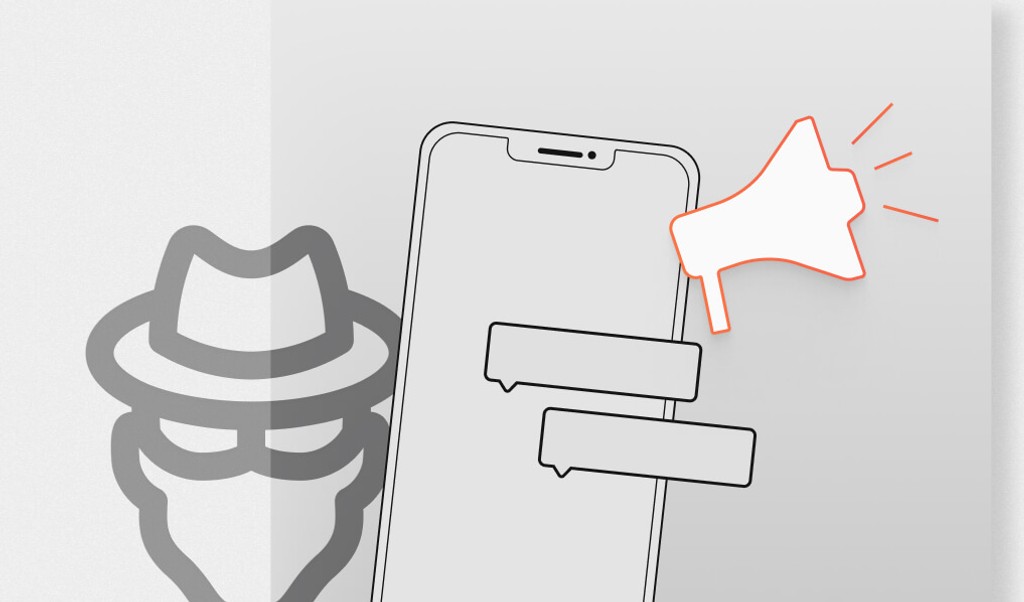
Summarize this article with
Referrals are insanely powerful. Studies show that 92% of consumers trust referrals or recommendations from people they know personally, making referral marketing one of the most influential types of advertising. And what's more, approximately 50% of customers will refer their friends or family members if there is a direct referral incentive.
Additionally, successful referral programs can rapidly increase revenue for your business. For example, 86% of businesses with structured referral programs have experienced revenue growth within two years.
When a referral program goes right, it's a win-win-win situation – you expand your customer base, your existing customer gets a kickback, and their friend gets introduced to your great brand.
But then again, new referrals aren't always as they seem.
If you start to notice that your referral ROI doesn't quite add up, or you've been sending a suspicious number of "first orders" to the same address, you could be a victim of referral fraud.
Let's learn what referral fraud is and how it works so you can recognize it and prevent it from occurring in the first place.
What Is Referral Fraud?
Referral fraud occurs when a user exploits your referral program to gain unearned rewards. These rewards include providing referrals that are not genuine, creating fake accounts to game the system, giving self-referrals, dispersing a referral code through channels that are not approved by the business, and more.
How Referral Fraud Works
Instances of referral fraud can range from simple to surprisingly elaborate. It occurs when a fraudster (or a genuine customer tempted by the benefits) exploits your referral program for personal gain. In this case, they reap the rewards – be they points, cash, or free product – but the action does not result in a genuine referral or new revenue for your business.
Here are a few common types of referral fraud:
- Self-referral
Have you ever been tempted to input a secondary email to get a referral bonus from a service you already use? That's what happens here – customers refer themselves by creating a fake second account to take advantage of both the referral incentive and the "first" order discount. - Return abuse
In this instance, a customer refers a friend, that friend places an order, the referrer reaps their reward. Then the friend returns the order – resulting in your business paying out a customer reward without making a new sale. - Repeat referrals
This sometimes occurs in referral programs that don't stipulate who is eligible to refer and how often. So, for example, a customer may refer a friend, who then refers that customer back, and so on – so they get a bunch of free stuff without providing your business any genuine new referrals. - Broadcasting
Broadcasting happens when referrers "broadcast" their referral codes on promo code websites, Reddit, and the like – referring internet strangers rather than their friends yet still reaping the rewards.
How to Recognize Referral Fraud
As with any fraud, it's best to prevent referral fraud before it becomes a problem for your business. But even with proper safeguards in place, you may not be able to catch all instances.
Here are a few telltale signs of fraud to watch for as you monitor your referral program:
- A customer getting a high volume of referrals in a short time
- Users with previous fraudulent activity getting referrals
- Traffic coming from a promo code site
- Referrals coming from visitors using stolen or fake identities
- Referrals going to duplicate emails/addresses
What Makes Referral Fraud a Threat to My Business?
On the surface, referral fraud may seem relatively harmless. But if left unchecked, it can severely impact your business – whether due to multiple existing customers racking up the points by referring themselves or sophisticated fraudsters defrauding your company of thousands of dollars.
While rare, there have been instances where referral fraud had gone astonishingly far – like when a man from Queens allegedly used hundreds of stolen and false identities to defraud a ride-sharing business of $500,000. Or when a 24-year-old got $50,000 in free Uber rides by broadcasting his referral code via email and Reddit.
Of course, these are very extreme examples. But even small amounts of referral fraud can have serious consequences. Here's why referral fraud can be a severe problem for your business:
- Inflates growth – A program clogged with fraudulent referrals can throw off important marketing and sales statistics.
- Loss of revenue or products – even customers availing of unearned 20% off coupons here and there can have a significant impact on your bottom line.
- Wasted time – Detecting and disputing referral fraud can be a costly and very manual process.
How to Prevent Referral Fraud in Your Business
A few minor tweaks can help deter fraudsters from infiltrating your rewards program – and protect your hard-earned revenue. Here are a few simple ways to prevent referral fraud in your business:
-
Find a balance with reward value
Pretend you're a fraudster, just for a moment. Which program will you try to exploit: one that offers a $50 cash reward for every referral or one that provides a 20% discount code on your next purchase?
Make the incentive too good, and you're asking people to take advantage – but make it too small, and even legitimate customers with friends to refer likely won't bother. Find a happy medium of something that's enticing to genuine customers but won't attract fraudsters. -
Offer credit, not cash
Fraudsters are far more interested in cash than in free or discounted products. Consider offering discount codes or redeemable points on your site rather than cash or gift cards. Many businesses already protect themselves in this way: dollar credits are the most popular referral incentive, followed by percent discounts. -
Set rules
Set a few basic ground rules to discourage referral fraud. Here are a few rules you can consider instating as you set up your referral program:- Only one sign-up per address or email address
- Bonuses can only be earned for referring new customers
- Referrers must be existing customers who have made a purchase
- Each customer can only refer a limited number of people
- Rewards are only achieved after the new customer's purchase is fulfilled
-
Use the right tools Many referral marketing platforms automatically flag suspicious activity and allow you to set specific rules to deter fraudsters. For even more sophisticated fraud prevention, use Fingerprint. It's a highly accurate browser fingerprinting service can prevent referral fraud, friendly fraud, gift card, and coupon abuse, reduce chargebacks, identify malicious users, and more. Learn more about Fingerprint's eCommerce fraud prevention here.



